We used the latest data and insights to identify the highest paying jobs for biotechnology majors so that you can learn and earn more.
Biotechnology helps us to develop new medicines, create better ways to make food, and even build better fuel sources.
But what are the highest-paying jobs for biotechnology majors?
We looked at the recent data from reliable job sites, such as the US Bureau of Labor Statistics, Payscale, and Glassdoor, to find the highest-paying biotechnology careers.
Let’s dive into the list!
Here is a video summary based on this article
You Might Also Want To Know:
- 10 Highest Paying Fashion Jobs to Consider
- 10 Highest Paying Graphics Design Jobs to Consider
- 10 Highest Paying Accounting Jobs To Consider
Table of Contents
#10. Biomanufacturing Specialists
How much do they get paid?
- Source: Glassdoor
- Low Range: $37,000 per year
- High Range: $73,000 per year
- Median Pay: $51,789 per year

What do they do?
Biomanufacturing specialists are the craftsmen of the biotechnology world. They’re responsible for creating products like vaccines, blood products, and tissue implants that meet FDA (Food and Drug Administration) standards.
What degrees and skills are usually required?
These specialists need a bachelor’s degree in chemistry, biotechnology, biology, or a related field and at least one year of experience in the industry. Most employers prefer candidates with master’s degrees for advanced positions in the biotechnology industry.
Who’s hiring for this job?
Biomanufacturing specialists are employed in a wide range of companies and industries, including pharmaceuticals, medical devices, biotechnology, and healthcare.
What is the best way to get this job?
Once you have the required qualifications, you can find openings on Monster, Indeed, SimplyHired, and LinkedIn. You may also want to consider networking with biotechnology professionals in the field. They may know of current job openings.
What’s it like to be a biomanufacturing specialist?
#9. Microbiologist
How much do they get paid?
- Source: Payscale
- Low Range: $40,000 per year
- High Range: $80,000 per year
- Median Pay: $56,026 per year
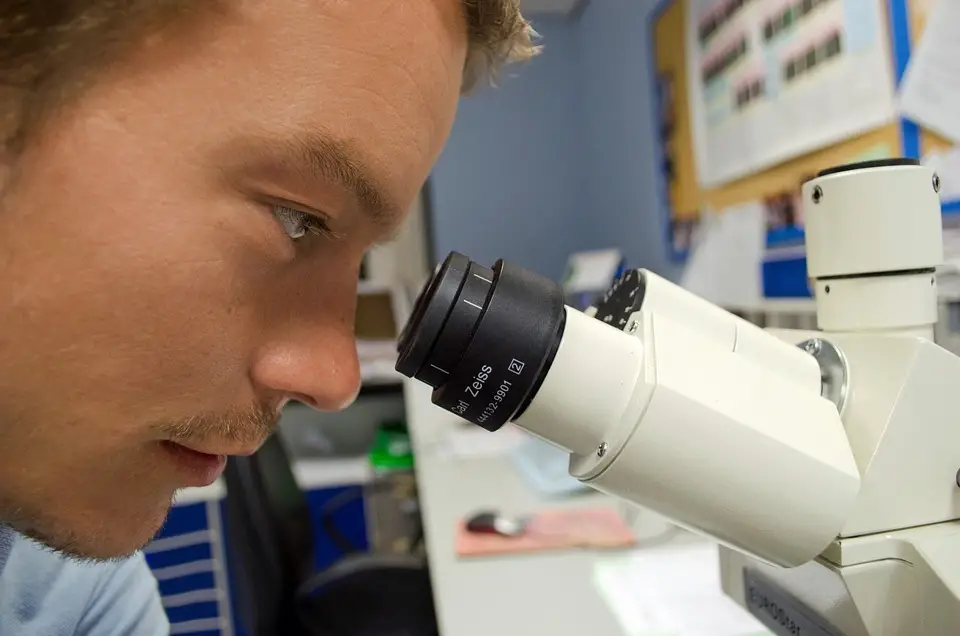
What do they do?
Microbiologists study the growth and development of microorganisms. They use various techniques, including microscopy and cell culture, to better understand how these tiny organisms interact with their environment.
Microbiologists also develop methods for preventing disease caused by bacteria, viruses, or fungi.
What degrees and skills are usually required?
Entry-level positions typically require at least a bachelor’s degree in microbiology or a related subject. Many employers prefer candidates with an advanced degree, such as a master’s or Ph.D., especially for research positions.
Who’s hiring for this job?
Companies that hire microbiologists include pharmaceutical and biotechnology firms, food processing companies, and government agencies. Microbiologists who are interested in research positions may find opportunities at universities or research institutions.
What is the best way to get this job?
One of the best ways to get a job as a microbiologist is by earning a bachelor’s degree in microbiology or a related field. You can also earn a master’s degree or Ph.D., which will give you more opportunities for research positions.
It’s important to gain experience in the lab while earning your degree, as many employers prefer candidates who have already gained some practical experience.
What’s it like to be a microbiologist?
You Might Also Want To Know:
- 10 Highest Paying Human Resources Jobs to Consider
- 10 Highest Paying Marketing And Advertising Jobs to Consider
- 10 Highest Paying Jobs For Sports Science Majors
#8. Biochemist
How much do they get paid?
- Source: Payscale
- Low Range: $45,000 per year
- High Range: $103,000 per year
- Median Pay: $66,722 per year

What do they do?
Biochemists are the glue between biology and chemistry. They study the molecular structure of living organisms and how they interact with each other.
These scientists may work on drug development, DNA sequencing, or agricultural research. Biochemists also help companies develop new products and processes by analyzing natural compounds.
What degrees and skills are usually required?
Biochemists usually need a bachelor’s or master’s degree in chemistry or biochemistry, as well as an advanced degree from a Ph.D. program.
You should have excellent communication skills because you will often work with other scientists and business professionals with no background in biochemistry.
Who’s hiring for this job?
The biochemistry field is growing, and many companies need biochemists to develop new products or run experiments.
You might find jobs at pharmaceutical companies, medical research facilities, or hospitals. Biochemists can also work in academia and research labs focusing on biology-related topics.
What is the best way to get this job?
If you’re interested in biochemistry, consider earning an undergraduate degree. Then, try to get experience working with scientists as an intern or volunteer to learn more about the field. You should also consider getting an advanced degree.
A Ph.D. will help you get a job in academia or research labs, while an MBA can help you find work in business.
What’s it like to be a biochemist?
#7. Biomedical Engineer
How much do they get paid?
- Source: Payscale
- Low Range: $51,000 per year
- High Range: $99,000 per year
- Median Pay: $69,350 per year
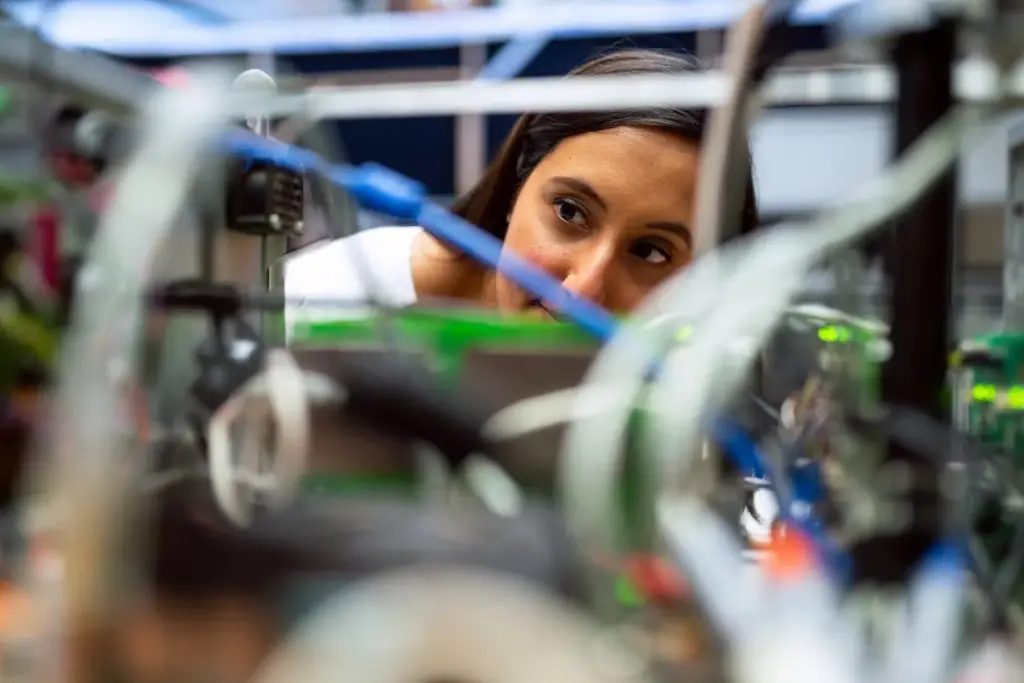
What do they do?
Biomedical engineers are responsible for designing and developing medical devices. This includes everything from prosthetics to artificial organs and machines that help patients recover from injuries and illnesses.
What degrees and skills are usually required?
Biomedical engineers typically have a bachelor’s degree in biomedical engineering. In some cases, they may also pursue an advanced degree like a master’s or doctorate. Employers may also look for experience in the field, either through internships or volunteer work.
Who’s hiring for this job?
These engineers work in hospitals and research labs. They may also be hired by companies selling medical devices or developing new healthcare technology.
What is the best way to get this job?
An undergraduate degree in biomedical engineering is often a good place to start. You can then look for opportunities to gain experience in the field. You can also try applying directly to companies that hire biomedical engineers.
Should you become a biomedical engineer?
You Might Also Want To Know:
- 10 Highest Paying Mechanical Engineering Jobs
- 10 Highest Paying Jobs For Philosophy Majors
- 10 Highest Paying Music Jobs
#6. Agricultural and Food Scientists
How much do they get paid?
- Source: ZipRecruiter
- Low Range: $19,000 per year
- High Range: $134,500 per year
- Median Pay: $69,943 per year
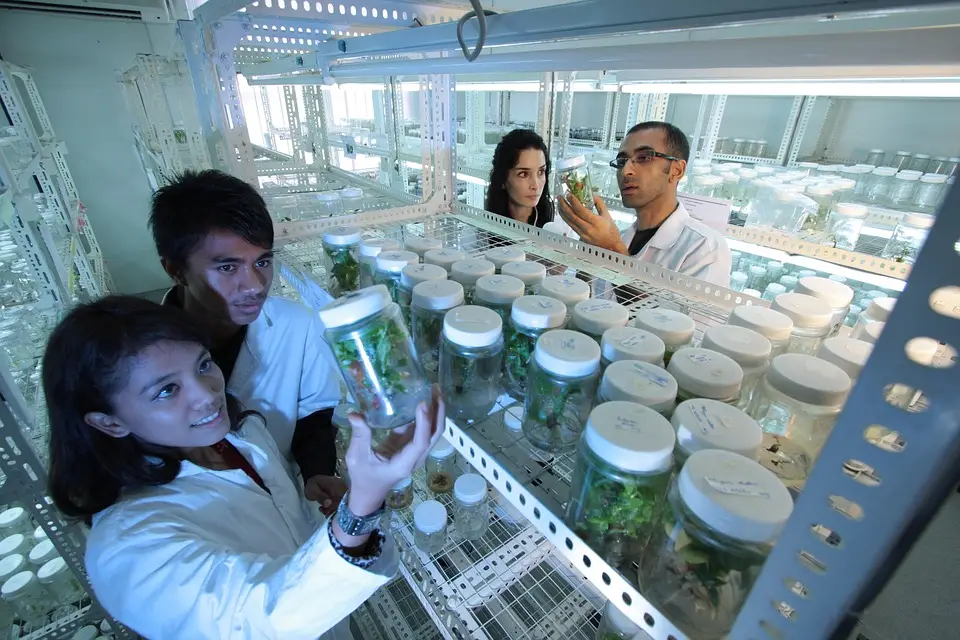
What do they do?
Agricultural and food scientists are responsible for producing, processing, and distributing food products. They conduct research on crops and livestock to determine how to grow them more efficiently in terms of both yield and quality.
These professionals also develop new processes for growing crops that require less energy or water.
What degrees and skills are usually required?
A bachelor’s degree in agricultural science or food science is commonly required for this field. Many agricultural and food scientists also earn graduate degrees, such as a master’s degree in plant breeding and genetics.
Who’s hiring for this job?
The federal government, state agencies, and universities employ agricultural and food scientists. They may also be self-employed as consultants or run their own businesses.
What is the best way to get this job?
If you want to pursue a career in agricultural science, you should start by earning an undergraduate degree. You can then continue your education by earning a master’s or doctorate in agriculture or food science from an accredited university.
Once you have completed your education, you can look for employment and apply for jobs. You may also want to consider volunteering at an agricultural research facility.
Should you become an agricultural and food scientist?
#5. Biophysicist
How much do they get paid?
- Source: Salary.com
- Low Range: $58,598 per year
- High Range: $92,050 per year
- Median Pay: $70,666 per year
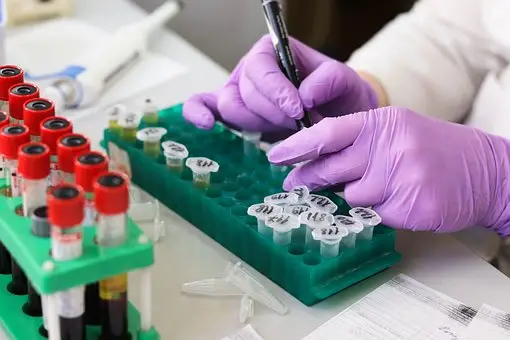
What do they do?
Biophysicists study the physical and chemical properties of matter at the molecular level. They use their chemistry, physics, biology, and engineering knowledge to solve problems related to a wide range of health issues.
Biophysicists may work in pharmaceutical companies or medical research facilities where they help develop new drugs that can treat illnesses.
What degrees and skills are usually required?
To be a biophysicist, you need a bachelor’s degree in biophysics, physics, or chemistry. You can also get a master’s degree or Ph.D. in biophysics. In addition to the training provided by your school, you will need some practical experience to be successful as a biophysicist.
Who’s hiring for this job?
Biophysicists are hired by a wide range of companies and organizations. For example, they may work in the pharmaceutical industry to develop new drugs, or they may be employed by medical research facilities to help find cures for diseases such as cancer.
These physicists can also work at universities and colleges, teaching students about physics and biology.
What is the best way to get this job?
To get a job as a biophysicist, it is important to have a graduate degree in biophysics. You should also seek internships to help you gain the necessary experience. If possible, try to obtain an internship at a lab that works directly with biological or physical specimens.
What’s it like to be a biophysicist?
You Might Also Want To Know:
- 10 Highest Paying Communications Jobs
- 10 Highest Paying Hospitality Jobs
- 10 Highest Paying Interior Design Jobs
#4. Medical Scientists
How much do they get paid?
- Source: Payscale
- Low Range: $40,000 per year
- High Range: $178,000 per year
- Median Pay: $82,138 per year
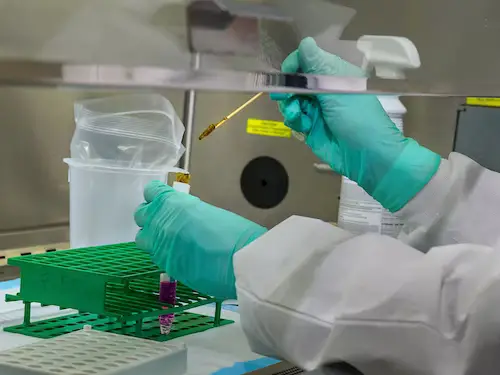
What do they do?
Medical scientists work in many different areas. Some specialize in biochemistry and cell biology, while others focus on genetics or immunology.
Pharmaceutical companies may employ them to help develop new drugs or medical devices. Or work at medical research facilities to find cures for diseases.
What degrees and skills are usually required?
A master’s degree in biochemistry, biotechnology, molecular biology, or a related field is typically necessary for entry-level positions. Some jobs may require a Ph.D. Employers also look for candidates with research experience, strong communication skills, and the ability to work well in teams.
Who’s hiring for this job?
The pharmaceutical industry is a good place to start. Biochemists are in demand at research facilities, medical equipment companies, and biotech firms. You can also find opportunities with government agencies and healthcare providers such as hospitals.
What is the best way to get this job?
If you’re interested in biochemistry, then you can get a bachelor’s degree in a related field. Some universities offer specialized programs in this area.
You may also want to consider getting a master’s degree or Ph.D., which will provide the advanced knowledge required for many entry-level jobs.
Should you become a medical scientist?
#3. Process Development Scientists
How much do they get paid?
- Source: Zippia
- Low Range: $74,000 per year
- High Range: $138,000 per year
- Median Pay: $101,098 per year
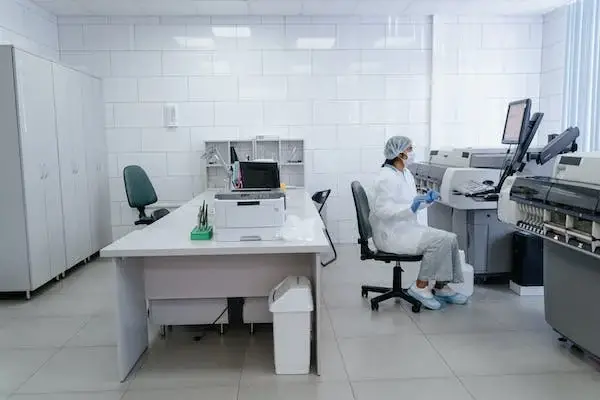
What do they do?
Process development scientists are responsible for developing and improving processes that are used to manufacture products.
This can include designing new equipment or modifying existing systems. They may also be responsible for testing these processes and ensuring they work properly before implementation.
What degrees and skills are usually required?
Most companies hiring process development scientists will require at least a bachelor’s degree in chemistry, biotechnology, or chemical engineering. You may also need to have experience with industrial processes, such as those used in manufacturing.
Who’s hiring for this job?
Companies hiring process development scientists include pharmaceutical, chemical, and petroleum companies. Research institutions and government agencies may also employ these scientists.
What is the best way to get this job?
Once you have your degree, networking is the best way to get a job as a process development scientist. Get in touch with professionals in the field and make connections that can help you land a position when one opens up.
What’s it like to be a process development scientist?
You Might Also Want To Know:
- 10 Highest Paying Management Information Systems Jobs to Consider
- 10 Highest Paying Legal Jobs to Consider
- 10 Highest Paying Industrial Engineering Jobs to Consider
#2. Biotechnician
How much do they get paid?
- Source: Salary.com
- Low Range: $86,879 per year
- High Range: $128,097 per year
- Median Pay: $105,269 per year

What do they do?
Biotechnicians are scientists who work in the field of biotechnology. They perform research on all aspects of biotechnology, including genetic engineering, cloning, and tissue culture.
Biotechnicians may also be responsible for performing tests on animals or plants to ensure they are safe and healthy.
What degrees and skills are usually required?
Biotechnicians typically need a bachelor’s degree in biotechnology or a related field. Many universities offer programs that focus specifically on biotechnology, but some general biology programs provide students with the skills they need to enter this field of study.
Who’s hiring for this job?
Biotechnicians are employed by research institutions, government agencies, and private companies. The US Bureau of Labor Statistics expects the job outlook for biotechnology to grow 9% from 2021-2031.
What is the best way to get this job?
Once you have your degree, you can begin by checking out job sites like Indeed, Monster, and LinkedIn, which feature a variety of biotechnology jobs. You may also want to look for biotechnology positions at your local university or community college.
What’s it like to be a biotechnician?
#1. Biotechnology Research Scientist
How much do they get paid?
- Source: Salary.com
- Low Range: $86,960 per year
- High Range: $128,225 per year
- Median Pay: $105,300 per year
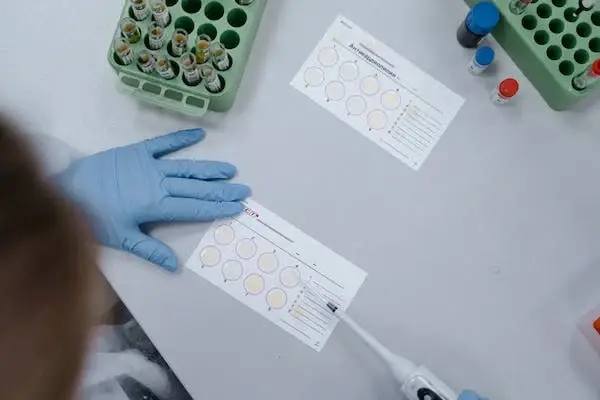
What do they do?
Biotechnology research scientists are responsible for designing, conducting, and interpreting experiments related to the development of new drugs and vaccines. They may use their skills in biology and chemistry to conduct scientific research cells, genes, proteins, or other elements of living organisms.
What degrees and skills are usually required?
While a bachelor’s degree is often sufficient, many employers prefer candidates who have a master’s or Ph.D. in biochemistry, biotechnology, microbiology, or another related field.
These research scientists also need to be able to perform complex experiments and analyze data. They may have experience working in a laboratory or as an intern at a biotechnology company.
Who’s hiring for this job?
Biochemistry research scientists work for universities, colleges, hospitals, biotechnology companies, the federal government, and other organizations. The national average salary aries depending on your experience level, expertise, and your employer.
What is the best way to get this job?
There are many opportunities to get a biochemistry research scientist job. You can apply directly to employers or network with colleagues and professors to find out about jobs before they’re advertised.
But first, you should have at least a biotechnology degree and some experience working in a laboratory.
What’s it like to be a biotechnology research scientist?
You Might Also Want To Know:
- 10 Highest Paying Law Enforcement Jobs to Consider
- 10 Highest Paying Web Design Jobs to Consider
- 10 Highest Paying Pharmacist Jobs
Conclusion
Biotechnology is a fast-growing, exciting industry with much room to grow. This is the right field for you if you’re interested in a career that combines biology, chemistry and technology.
These careers offer a variety of opportunities for you to impact the world and help people. We hope this guide has been helpful, and we wish you the best of luck in your search.


